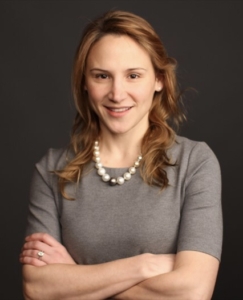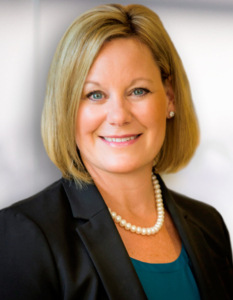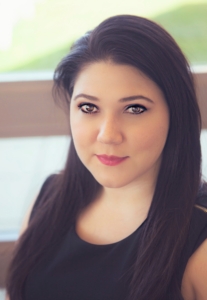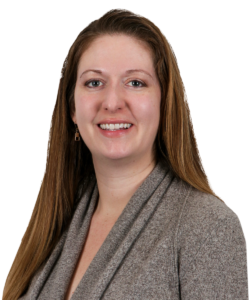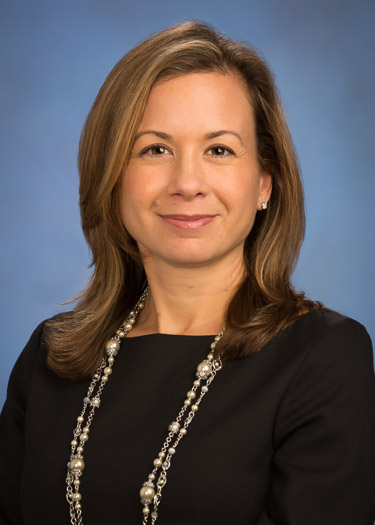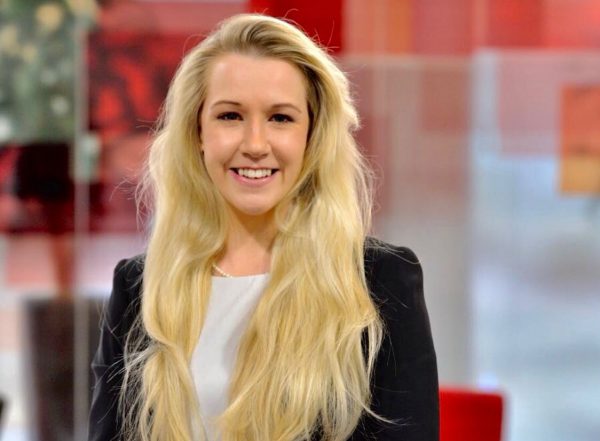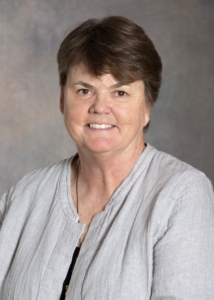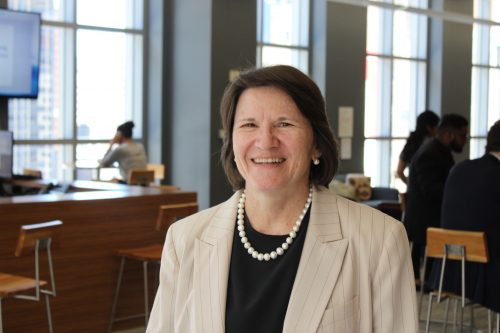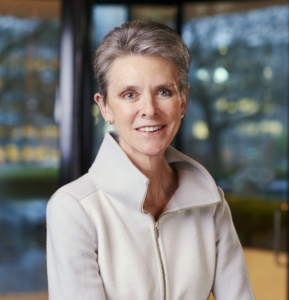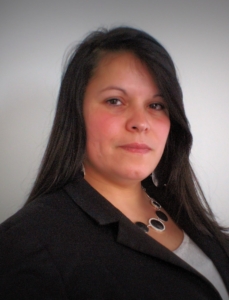As a sociologist by training, Emilie Poteat has learned that it’s simply a fact that things will work out when you stop trying so hard and get out of your own way.
“You have to continue to make pathways to a goal regardless of how many iterations there are and realize that you have to embrace the ability to admit failure, evaluate what could go better and try again,” she says.
An Ongoing Path to Self-Reflection
Poteat started her career in a non-traditional way, earning a PhD with a focus on economic sociology – researching how markets form and how companies function and evolve in markets. While she had initially thought she might pursue a future in academia, her wife suggested she work at one of the companies she was researching instead. She spoke to Goldman and ended up working in their transformation department where they were focusing on organizational design — looking at their operations and determining what could be improved and how they could learn from others in the marketplace.
When she was contacted by a venture capital firm in Philadelphia, she was intrigued at the prospect of occupying the operator seat as she had been looking into small companies that Goldman could invest in and had been seeing interesting businesses bubble up. She took the role, where she led a turnaround on an insurance company, splitting it into two and bringing it to profitability.
While it was challenging given all the dimensions, she found it fascinating and names it as one of the professional achievements she is most proud of. “Bringing that company to profitability was both exhilarating and terrifying,” she says, noting that the culture was poor which led employees to have low expectations. She worked on an all-encompassing change from business processes to product changes and interpersonal relationships, relishing the chance to drop down and look at a problem and then zoom up to the bigger picture.
And therefore she found herself at a crossroads when she finished that engagement, trying to decide if she wanted to continue operating companies, which combined her love for research with her proclivity to flipping companies around, or did she want to take some time to work on herself? Ultimately she decided to come to Bridgewater where she is focused on the systemization of management, while learning more about how she operates as a leader. “I am investing in myself by taking a role with a smaller scope, yet one that I know will help me be more impactful when I eventually step back into the operator position,” she says.
For now she believes that her time at Bridgewater will help show her strengths as well as flaws, as she works with a team who is poised to provide honest feedback.
Building Relationships as a Key to Success
After spending six years getting her PhD and teaching university classes, Poteat expected the corporate world to be cutthroat, but she has found it to be extremely humane. “It has been incredible to meet smart, hard-working, dedicated people who have gone out on a limb for me,” she says. As one example, she cites Johann Shudlick, then the head of the LGBT network at Goldman and now driving diversity at Bridgewater as the one who went to bat for her, finding out her goals and then taking the time to open doors by introducing her around the Street.
While she acknowledges the business world can be competitive, she finds there is still a camaraderie around it. “I’ve been happiest when I’ve helped others around me grow, and I’ve been able to make great friends and form strong relationships over the years,” she says, noting that academia involved more quiet work without that interplay.
As she reflects on those she admires, she says she finds herself noticing those who can objectively view themselves in the moment. “Yes, you have to consider your numbers and impact and how you effect change, but what I admire is people who are able to genuinely lead by understanding how their leadership style impacts the group.”
Always looking for those learning moments, Poteat cites one that has stuck with her. She relays how she had signed off on what ended up being a big bill, before she realized she had gone through the motions and pushed it forward without checking it carefully enough. “It ended up being impactful, and I should have verified that it wasn’t exactly what I thought it was,” she says, saying it helped her self-reflect on how her bent toward action orientation helped propel the blunder forward. “While this focus on action is generally a strength, it can be more of a hindrance when I pair it with bravado,” she says, noting that it’s important to always slow down and take that extra step. “I learned the importance of balancing confidence with humility, which I try to work on every day,” she says.
While Poteat knows that it can be hard for some people, she says that it would be impossible to her to not be out at work. And she’s found it to be a benefit to her career as it opened up relationships in affinity groups, as well as allowing her to help others on the personal front. In fact, in larger organizations she finds that the managers she had were quite proud she was on the team and that her different reality allows her to see the play on the field from a different vantage.
She and her wife share their life with two Golden Retrievers and love to travel. On the philanthropic fronts, they invest in LGBT-founded companies through angel investing with a group called Gaingels. Companies they support must have LGBT representation within the C-suite, and one of Poteat’s favorite parts is getting to meet the founders while providing economic empowerment.
In addition, she and her wife, along with her wife’s family, have established the Global Education Scholarship fund in memory of her wife’s brother who passed away when he was 31 from cancer. It supports students at Elon, particularly those who may have a chronic illness that might diminish their health quality. She says she always wants to emphasize that despite any life challenge, the timeline of your life remains separate from the value you bring to each moment.
“We underscore that it’s not the length of your life timeline, but the volume of the value you fit into your time,” she says, an ethos they themselves live by maximizing the value of every day.

